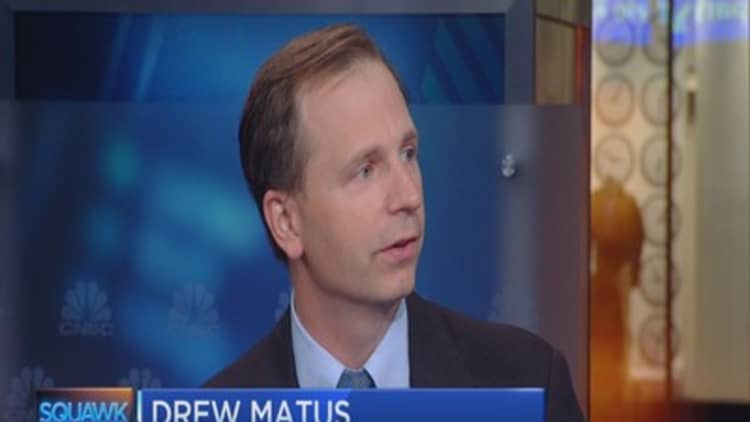
UBS economist Drew Matus said Thursday he is expecting a good monthly jobs report on Friday, and that could spell trouble for the Federal Reserve's plans for interest rates.
UBS' chief U.S. economist said he believes the Bureau of Labor Statistics will not only issue a positive read on last month's job creation, but a "big revision" to prior months. That could spark fears that the Fed has waited too long to raise its benchmark interest rate from near zero.
"For me, the biggest risk right now in the U.S. economy is actually that people begin to sense that the Fed's maybe waited a little too long," Matus told CNBC's "Squawk Box."
"If we can get to December and we just get OK news that keeps us on this stable platform, we're good. If the economy accelerates in the next three months, then the Fed is way offsides, and everyone's going to know it. And you're going to see the response in the market."
Read More Fed-in-a-box: Will there ever be a good time?
Economists are expecting the BLS to report the United States added 200,000 nonfarm jobs in September, roughly on par with the average monthly gain throughout the year.
A significant uptick in U.S. economic growth could force the Federal Reserve to raise interest rates more quickly than policymakers would like. The Fed has suggested it plans to raise interest rates gradually in 25-basis-point increments.
With the way the unemployment rate has been ticking down, market watchers could just soon be rounding down the unemployment rate to 4.5 percent, Matus said.
The unemployment rate has fallen from 6.1 percent in August 2014 to 5.1 percent in August of this year.
"I'm not saying you'll get to 4.5 [percent], but you could have a four-handle on it, and it could be moving lower on a sustained basis, and we're right around the point where we're expecting higher wages to start showing through in the U.S. economy. Every sign of labor market tightness is blinking bright red."
Once the unemployment rate falls low enough, wage inflation typically sets in as employers compete for a smaller pool of workers.


